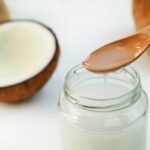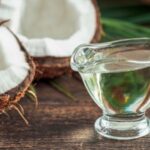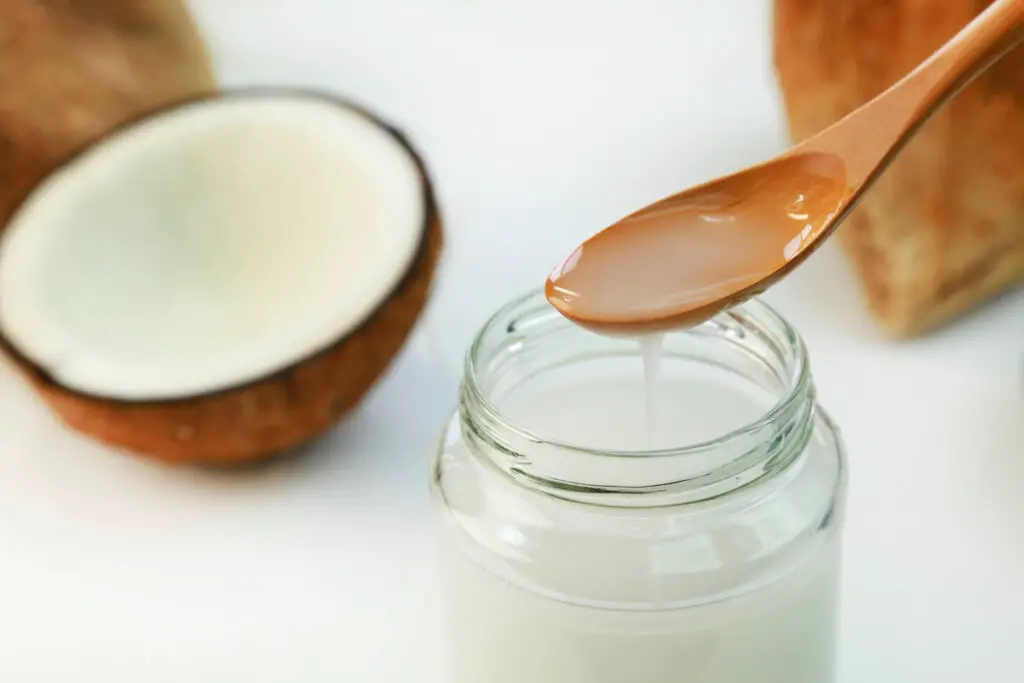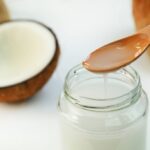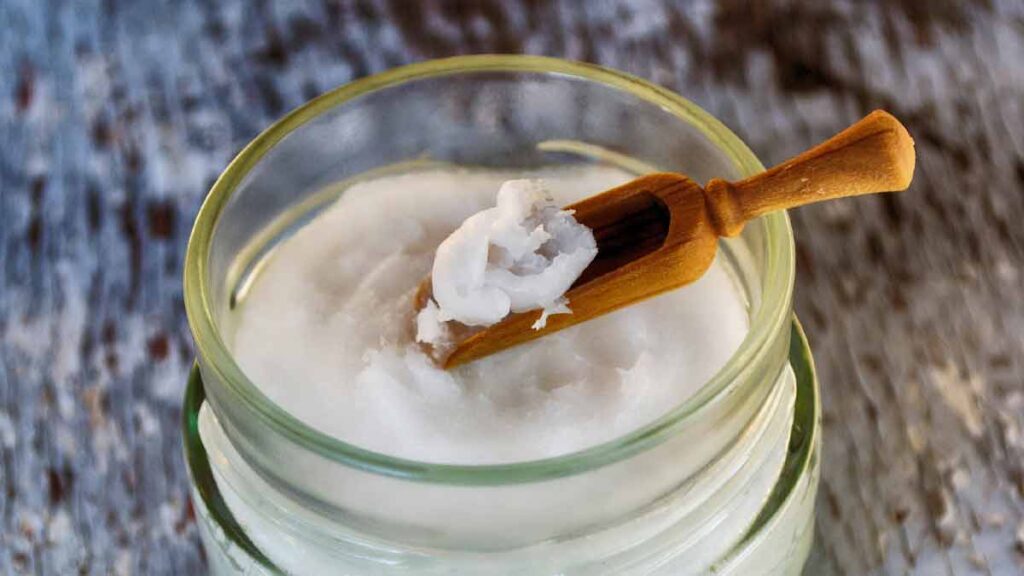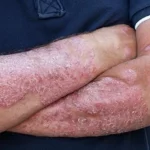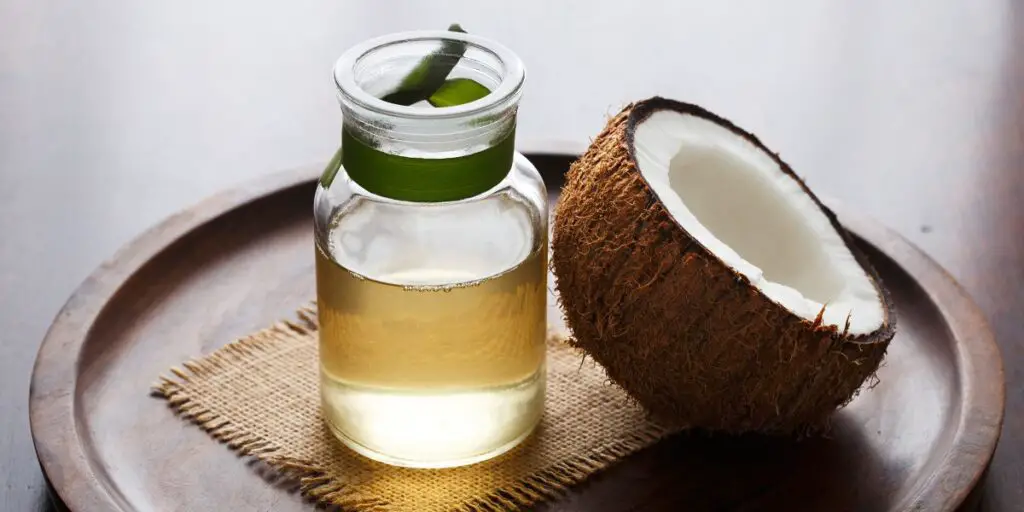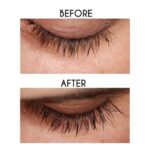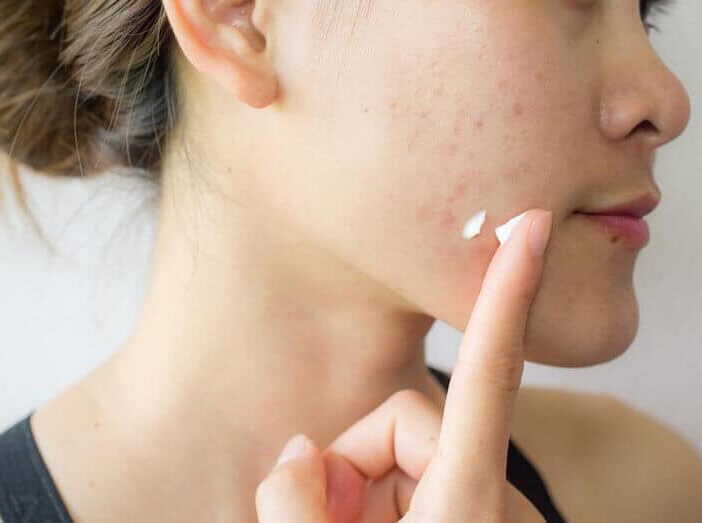
Scarring can be caused by a variety of conditions and circumstances, including acne, surgery, aging, and trauma.
While many people have embraced the idea of living with their scars as a badge of honor or a mark of beauty, others may feel more comfortable finding ways to reduce their visibility.
If you’re looking for a natural solution that helps minimize the appearance of scars, coconut oil may be worth considering.
Let’s explore what makes this natural remedy so effective and why you should consider adding it to your skincare routine.
Contents
- 1 Benefits of Applying Coconut Oil on Scars:
- 2 How Long Does Coconut Oil Take To Remove Scars?
- 3 What Is The Best Way to Apply Coconut Oil on Scars?
- 4 What Types of Scars Can Fade Away From Using Coconut oil?
- 5 Shea Butter vs Coconut Oil on Scars:
- 6 Precautions While Using Coconut Oil on Scars
- 7 Conclusion:
Benefits of Applying Coconut Oil on Scars:
Here are the top 7 benefits of applying coconut oils on scars:
1. Moisturizing Properties
Coconut oil is known for its moisturizing properties which help keep skin hydrated and supple.
This helps to reduce any itching or discomfort that often accompanies scarring.
By keeping the scar tissue moisturized, coconut oil also helps to reduce wrinkles, further reducing the appearance of your scarring.
2. Antioxidant Benefits
Coconut oil contains antioxidants like Vitamin E and ferulic acid that can help protect your skin from free radicals that cause damage over time.
The antioxidants in coconut oil may also help fight off bacteria that could lead to infection in an open wound, thus helping with healing time and reducing the risk of future scarring due to poor healing processes.
3. Anti-Inflammatory Effects
Coconut oil is high in lauric acid which has anti-inflammatory properties that help reduce redness associated with scarring as well as swelling caused by inflammation or infection in an open wound.
4. Natural Sunscreen
Coconut oil has natural SPF qualities which can help protect your skin from sun damage which can cause further discoloration or increase the visibility of existing scars due to UV exposure from sunlight.
5. Facilitates Healing
With its antibacterial properties and its ability to keep wounds moist and protected from dirt, dust, and other external factors that could slow down the healing process or cause further irritation or inflammation.
Coconut oil can assist in facilitating faster healing times for wounds that are prone to producing scars later on down the line once healed properly such as cuts, burns, etc…
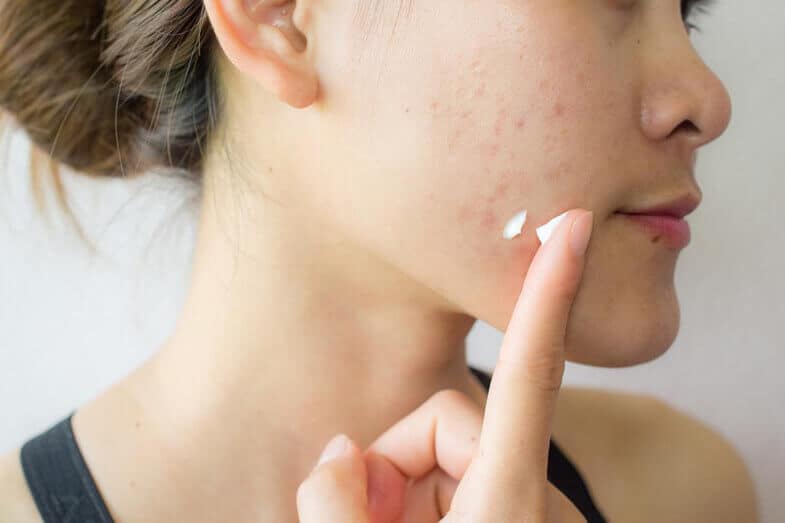
6. Stimulates Collagen Production
Collagen production plays a significant role in improving the elasticity of skin cells surrounding a scar which results in a more evened-out texture when it comes down to how visible your scar is (or isn’t!).
Applying coconut oil on scars has been linked with stimulating collagen production which makes it great for use on both existing old scars as well as fresh new ones!
7. Reduces Discoloration
Finally, one last benefit of using coconut oil regularly on areas susceptible to scarring is that it helps reduce discoloration associated with those areas making them less visible overall versus if left untreated!
How Long Does Coconut Oil Take To Remove Scars?
The amount of time it takes for coconut oil to remove scars depends on the severity, age, and type of scar.
Generally speaking, coconut oil on scars can help to reduce their appearance with regular use over a period of several weeks or months.
However, if you have deep acne scars or other types of severe scarring, you may require more intensive treatments to reduce their visibility.
If you have any concerns, it’s best to talk with your doctor or dermatologist for advice on the best options for your scarring.
What Is The Best Way to Apply Coconut Oil on Scars?
Let’s take a look at how you can apply coconut oil on scars.
1. Cleanse your Skin
Before applying any topical treatment to any scar, it’s important to start with clean skin.
This means washing your face with a gentle cleanser twice a day—once in the morning and once before bedtime—to remove dirt, makeup, and other impurities that may clog your pores or irritate your skin.
2. Exfoliate Gently Once Per Week
Exfoliation helps remove dead skin cells from the surface of your skin so that new cell growth doesn’t get blocked by debris.
To exfoliate gently, use a soft washcloth or loofah and make circular motions over your entire face, being careful not to press too hard on any individual area.
This will help open up your pores so that they’re better able to absorb the coconut oil on scars you’ll be applying later on.
3. Apply Coconut Oil Generously
After cleansing and exfoliating, apply coconut oil generously all over your face (or wherever else you have scars).
Massage it into the affected area using gentle yet firm strokes until it is fully absorbed into the skin.
You can also add some essential oils (like lavender or rosemary) to further enhance its healing properties if desired.
4. Add Moisturizer On Top To Lock In Hydration
If you want an extra layer of hydration after applying coconut oil on scars, add a light moisturizer on top of it (try something labeled “non-comedogenic”).
This will help seal in moisture and keep your skin feeling soft throughout the day without clogging up your pores or causing breakouts.
Make sure to avoid heavy creams or lotions as these may cause irritation or inflammation in some cases.
What Types of Scars Can Fade Away From Using Coconut oil?
This natural remedy can potentially help improve the look of your scars, but it’s important to understand what types of scars it works best for. Let’s take a closer look!
1. Hypertrophic Scars
Hypertrophic scars are those that are usually associated with burns and will often appear red and raised.
Coconut oil is effective in helping to reduce this type of scarring as it helps increase the elasticity of the skin and can help break down collagen fibers that make up the scar tissue.
It also has regenerative properties which can help heal damaged skin cells caused by the burn.
2. Contracture Scars
Contracture scars often resemble keloid scars except they’re red and raised.
Coconut oil can be beneficial in reducing contracture scarring as its anti-inflammatory properties can help reduce the swelling and inflammation associated with these types of scars.
Additionally, its moisturizing properties can help decrease itching or discomfort caused by contracture scarring.
3. Acne Scars
Acne scars are commonly deep pits or depressions in the skin which develop when too much collagen forms during healing after acne lesions form.
Applying coconut oil directly onto acne scarring can help break down excess collagen that has built up in the area which ultimately helps reduce their appearance over time.
The moisturizing effects of coconut oil also play an important role in helping to fade away acne scars faster than normal healing processes would take place without treatment.
4. Keloid Scars
Keloid scars are raised, thickened areas of skin that develop as a result of surgery or deep wounds and tend to occur more frequently in people with darker skin tones or those who have had multiple piercings done at once.
Coconut oil is particularly effective at reducing keloid scarring due to its anti-inflammatory properties which reduce inflammation and swelling associated with these types of scars while simultaneously helping to promote healing within deeper layers of skin cells where these types of scars often form.
Shea Butter vs Coconut Oil on Scars:
Coconut oil and shea butter are both natural remedies used to reduce the appearance of scars.
While they have some similarities, there are key differences that make them better suited for different types of scarring.
1. Coconut Oil:
Coconut oil is a light oil that can be applied directly to the skin or mixed with other ingredients like essential oils to make a nourishing face mask.
It’s rich in vitamins and fatty acids that help reduce inflammation, moisturize the skin and promote cell regeneration—all of which can reduce the appearance of scars over time.
2. Shea Butter:
Shea butter is a thick, waxy substance that is derived from the nut of the African shea tree. It’s a great source of vitamin A, which helps to improve the texture and tone of your skin.
Shea butter can also be used on scars as it helps reduce redness and inflammation while providing deep hydration for dry skin.
In conclusion, coconut oil and shea butter are both effective treatments for reducing the appearance of scars, although they work best for different types of scarring.
To get the best results, talk to your doctor or dermatologist about which option is right for you. They can also help guide you in terms of application techniques and how frequently you should use these treatments for optimal results.
Precautions While Using Coconut Oil on Scars
While using coconut oil on scars, it’s important to take a few precautions to avoid any adverse reactions.
- For starters, make sure not to apply too much coconut oil on scars as this could lead to irritation or clogged pores.
- Also, if you have sensitive skin, test the oil on a small patch of skin first before applying it to your entire face.
- Finally, if you experience any redness, itching, or burning after using coconut oil on scars, discontinue use and consult with a doctor as soon as possible.
Conclusion:
As you can see there are many benefits to using coconut oil for scars!
From reducing discoloration associated with them to help facilitate faster healing times; this all-natural remedy is an excellent option for anyone looking for a way to minimize the visibility of their scars naturally!
In short, coconut oil has many potential benefits for people looking for an all-natural remedy for fading away different types of scarring including hypertrophic, contracture, acne, and keloid-type scars.
Always make sure to consult with your doctor first before attempting any home remedies as some may not be suitable for everyone depending on their individual medical history or allergies they might have towards certain ingredients found within certain products such as coconut oil itself!

